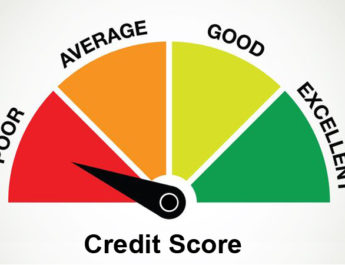In our life, the most important thing that we need to manage is our money. This can be accomplished by properly managing personal finance. Personal finance includes all the actions and decisions that an individual takes to keep track of daily expenses. Personal finance can be described by activities like insurance, savings, budgeting, planning mortgages, and saving for retirement. While planning for personal finance, current financial conditions need to be considered along with long term and short term requirements and planning to fulfill all the financial requirements. As suggested by most of the financial expert services, here are 12 things that you should know about personal finance:
-
Table of Contents
Prioritize 20% Income
Some activities require significant priorities in life such as debt repayment, emergencies, and saving for retirement. When you get income, consider these activities and set aside around 20% of your income for such activities.
-
Keep 30% of income for leisure
When you work hard, you need some leisure time also. You can dedicate one-third of your income in activities like dining out, watching movies, and going to club. In this way, you can enjoy your time and still stay financially responsible.
-
Create a financial calendar
Certain activities need to happen at certain dates like filling the taxes, getting a credit report, and paying rent and installments. These important activities can affect your financial planning. You can incur serious damage if you miss these activities. Hence, it becomes very important to create a calendar and mark these important events on it. This would remind you of performing these activities on time.
-
Utilize cash and control your spending
Only use cash for making the purchases to avoid overspending. When we shop with credit cards, we cannot keep track of actual spending. Moreover, most of the people overspend and convince themselves that they can pay the debt by month-end. When we use cash for shopping, we can spend more carefully by cutting down the expenses.
-
Analyze your daily spending
Keeping an eye on your everyday financial activities is very important. Analyze your daily spending every evening by maintaining a traditional ledger or use an app for the same. With this, you can easily identify the problem with your expenses and can set a daily expense goal.
-
Invest in Health Insurance
Life is full of risks. Health insurance can financially protect you from such risks. Make sure to invest in health insurance as soon as you start getting regular income.
-
Set a budget
When going for shopping, set aside a budget. A budget can be a list of expenses that you can expect while you shop. The budget can help you stay within your financial limits and can prevent you from spending more than you want to.
-
Stay motivated Financially
Practicing financial management requires dedication and discipline. To achieve proper financial management, you need to stay motivated. You need a focussed mind and for this, you can create a vision board for your finances. You can also create milestones for you to achieve your targets.
-
Be specific while creating financial goals
While creating financial goals, you need to be specific. Mention specific numbers and dates while creating goals. Additionally, you can set a target indicating how you will be achieving the target. Specify the amount of work and investment you have to invest to reach the goal.
-
Keep an emergency fund
Keeping an emergency fund is a necessity. This can be done by setting aside some amount of money each time you receive your income. No matter what amount you are spending every month, or how much debt you have, you should deposit a set amount in an emergency fund to avoid any kind of unforeseen financial needs. Moreover, you need to keep this fund secure. The fund should be saved in such a manner that it can be liquefied easily as and when required.
-
Save for Retirement from now
Retirement might seem like years away, but it is still a very important factor that you need to consider at a young age. This is because the retirements saving accounts give compound interest. When you start early even with a little amount, it will grow until you have enough amount in your account when you retire. You can get a retirement plan from the bank or the company you work for.
-
Analyze the Interest rates
Loans are an important aspect of personal finance. When you are taking a loan, always ensure that you can pay it off on time. When looking for a loan, you should find a loan with low-interest rates. Moreover, credit cards have compound interest rates and if you lose control of the debt, you may get into financial trouble.
Planning personal finance can help you understand where you spend and how much you spend each month. As soon as you start earning, you should begin managing your personal finance. For better financial planning, you can consider following a trusted financial blog. Planning personal finance will ensure that you have control of your future finances.




